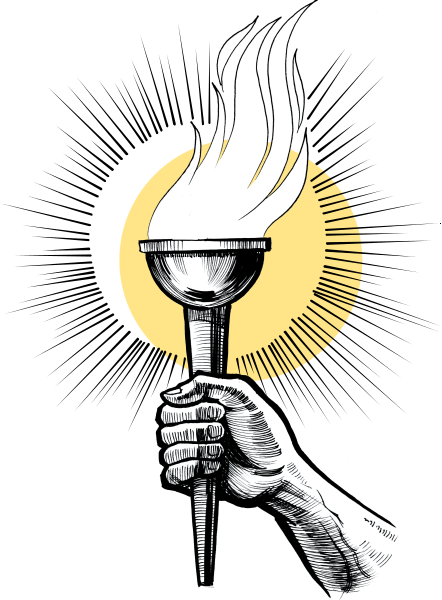Difference Maker: Johnny Edmondson grows community through gardening

Over the last seven years, Johnny Edmondson has fostered a network of more than 70 gardens throughout Spokane.
The family ministry director at Shadle Park Presbyterian Church leads Growing Neighbors, a project with a mission to build healthy neighborhoods by growing and sharing food.
Like gardening itself, “I treat it as an ongoing experiment,” Edmondson said.
Growing Neighbors invites residents to plant urban farmyards on their land and to join the network that includes gardens at schools, libraries and community centers. Volunteers pitch in to help tend the patches.
“I want to help neighbors share their food as creatively and as generously as possible,” Edmondson said.
Secondary goals are to fight food insecurity while growing food that is organic and regenerative, healthy for people and the planet.
Shirley Loucks has participated since nearly the beginning. She got involved because some of her gardening experiments weren’t working out and she wanted to learn more. Growing Neighbors gave her many opportunities to exchange ideas with other green thumbs, and to meet her neighbors. It’s a great conversation starter, she said.
“There is something about connecting people and food that is loving and kind and easy,” Loucks said.
Edmondson encourages neighbors to share what they can. Much of this food is exchanged informally, over fences. Some is sold at farmers markets on a take-what-you-need, pay-what-you-can basis.
And some produce is shared at a weekly dinner on Tuesday nights at the church where it supplements with food from local pantries.
Local chefs often volunteer to cook these dinners, like Joe Morris, who is head chef at Luna on the South Hill.
“It feels good to give back,” Morris said.
Cooking the meal is a fun challenge because he never knows what ingredients he is going to get. He figures it out and puts it together in an hour or so.
“I love seeing people just being happy,” he said. “Food is community.”
About 30 people come on a typical week. Some are from the church, but many are just from the neighborhood.
Take for example Monika Eckhart, who is in law school and is a single mother of two children. She enjoys attending the dinners as a family because there are no expectations and everyone is welcome.
“It has become an important ritual for me and my kids,” she said.
Eckhart has made deep connections with others at the dinners. She said she struggles with loneliness.
Society struggles to build community among diverse groups of people, Eckhart said. There are hobby groups where everyone has a common interest, but it is harder to bring people together just because they are neighbors living in the same place.
“The only thing we have in common is we all have to eat dinner,” Eckhart said. That’s what she loves about the program.
After dinner, the church offers two hours of childcare so parents can relax, socialize or run errands. Eckhart uses the time to study or grocery shop.
Edmondson gradually started planting edible food after moving into his northwest Spokane home in 2006. As he did so, he grew more curious about the local food system and becoming less reliant on mass agriculture. He is especially interested in cultivating native plants like camas and serviceberries.
Growing Neighbors regularly hosts workshops with guest speakers on how to grow or cook certain things, such as purslane, which sprawls as a weed along sidewalks but is also a highly nutritious superfood.
“People have expressed gratitude for being able to grow or access food in ways they weren’t able to before,” Edmondson said.
He loves to partner with other organizations that share overlapping missions. With help from Washington State University Extension, Growing Neighbors is now installing composting systems along with gardens.
Since the COVID-19 pandemic, volunteers have assisted food banks with delivering food to residents with limited mobility.
And Growing Neighbors has helped install dozens of little free pantries across town. Modeled after little free libraries, the small cupboards built in front of homes allow neighbors to leave or take food as needed. Edmondson said the goal is to have one within a 15-minute walk of any resident in the city.
While Growing Neighbors is technically an organization under the church, Edmondson views it as a civic project.
“Spiritually, we love it when things we do help people grow a healthy relationship with our Creator as well,” Edmondson said. “But we don’t want it to be forced. It’s for all neighbors.”
One day, Loucks watched him stop someone walking by the church and asked if she was hungry. To Loucks’ surprise, she said yes. He gave her vegetables from the church’s garden.
“He has made a huge difference in my life and my neighborhood,” Loucks said.

